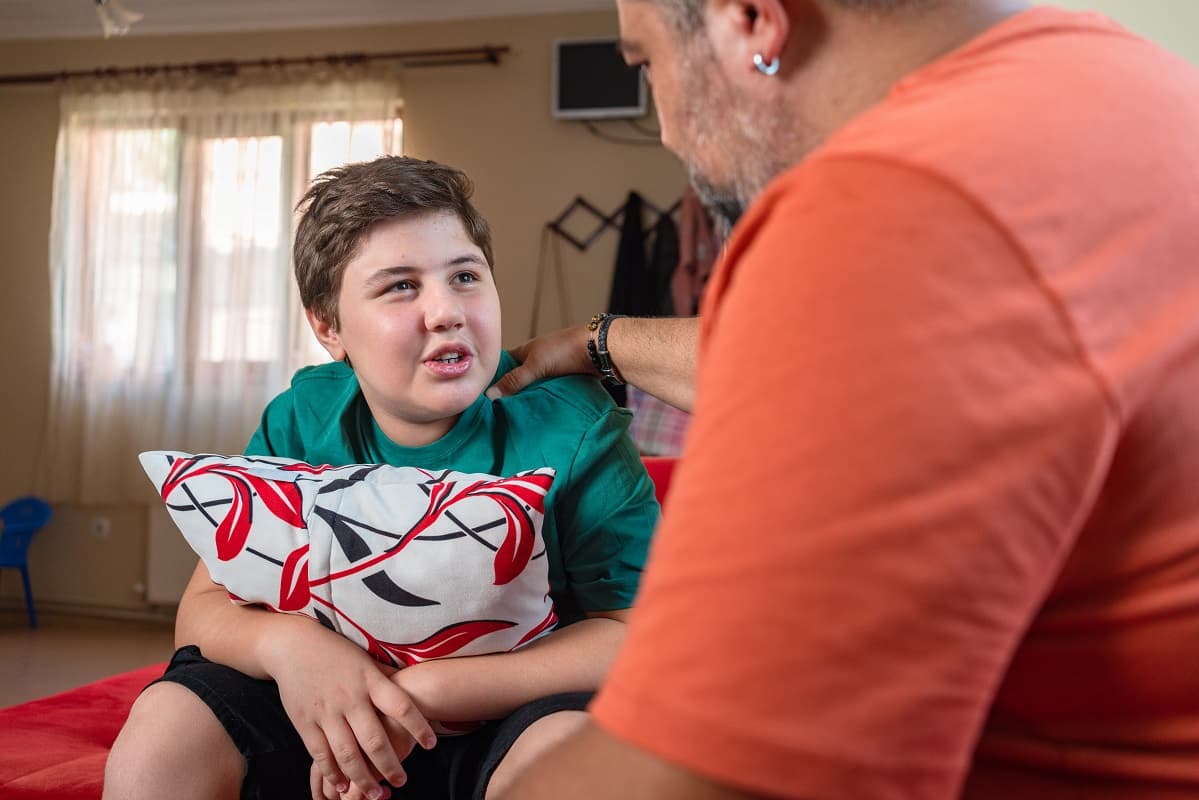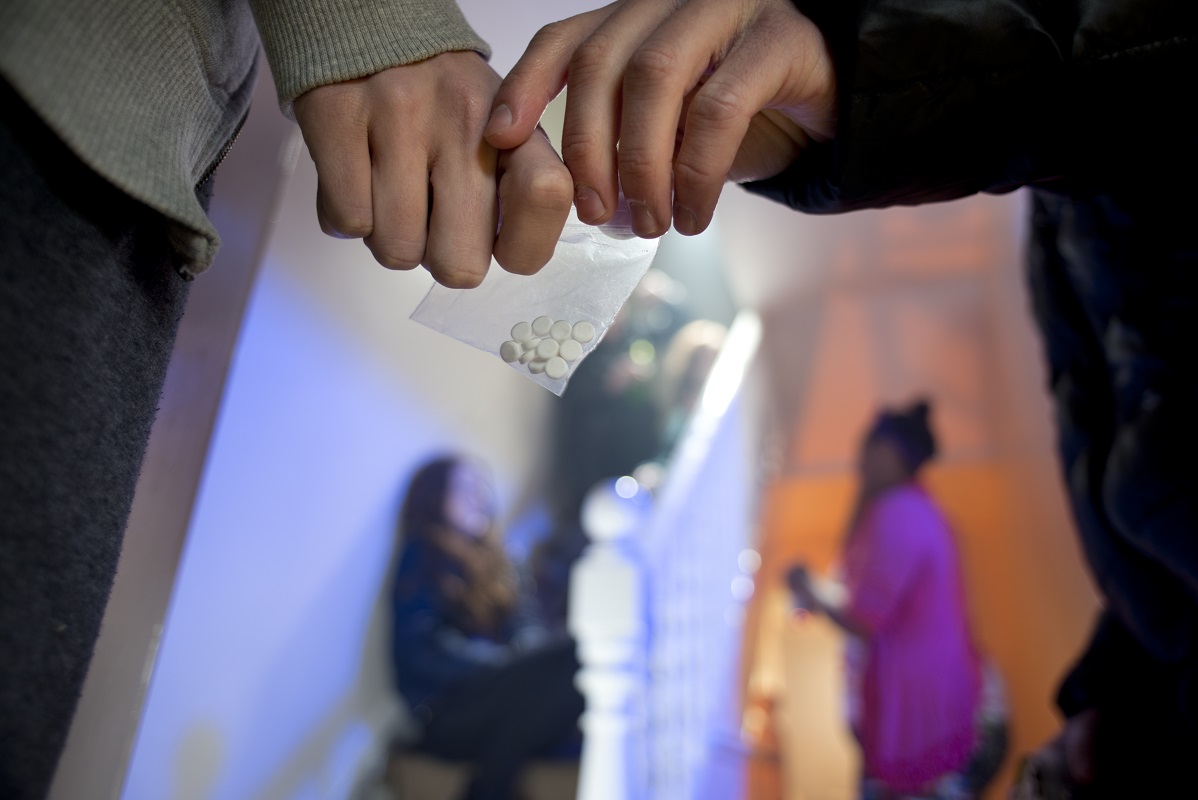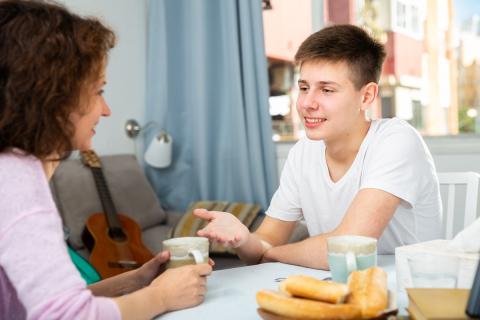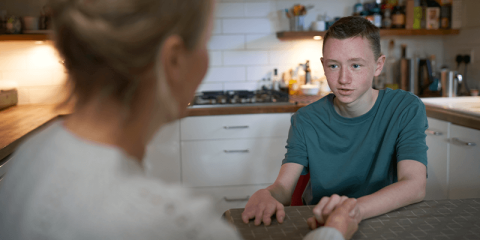You might think that gambling isn’t an issue that affects many children. Yet a recent survey showed that a fifth of 11-16 year olds had gambled in the past 4 weeks. And research shows that the younger someone starts gambling, the more likely they are to have a problem with it in later life. But by talking to your child about gambling and encouraging them to be open with you about what they do online, you can reduce the chance of them having problems when they’re older.
What are the laws around gambling in the UK?
The minimum legal age for gambling in the UK is 18 for the National Lottery, betting shops, bingo halls, casinos and online gambling, but this doesn’t necessarily stop under 18s getting involved. Some gaming machines in amusement arcades (like coin pushers, teddy grabbers and some lower stakes fruit machines) don’t have a minimum legal age.
Why is it important to talk to children about gambling?
The most common gambling activities for 11-16 year olds are private bets, scratchcards, fruit machines and playing cards. These may seem harmless, but if gambling gets out of control, it can lead to money worries, problems at school, isolation and depression.
In addition, many online games include activities that work in the same way as gambling does, encouraging children to spend money and take risks. As playing games is one of the most popular online activities for kids, it’s important to talk to your child about this, to help them make informed choices if they take part in these activities.
Here are some tips to help.
Tips for talking to your child about gambling
Tip #1: Make talking about gambling a regular thing
Like all potentially awkward conversations – from online safety to sex – the more you talk about it, the more comfortable you’ll feel. So rather than having one big ‘just say no’ conversation about gambling, it’s a good idea to chat about the risks and consequences regularly, so your child feels comfortable to approach you on the topic. For example, if you’re watching sport together you could talk about the gambling adverts you see, or if you hear a gambling advert on the radio you could ask them what they think about it.
Tip #2: Find out more about gambling
A great starting point is awareness of the kind of gambling children are more likely to get involved with, and the harm gambling can do. To learn more, visit the Parent Hub on the Big Deal website.
Tip #3: Ask your child what they think about gambling

It’s a good idea to ask your child what they think about gambling before offering your own opinion. This could be a great way to correct any misunderstandings they may have. For example, they may think it’s ‘just a bit of fun’, or that ‘everybody does it’. Remember that the way you answer any questions may affect how comfortable they feel approaching you in future to talk about gambling so it’s best to make it a discussion not a lecture!
Tip #4: Challenge the adverts
When you come across gambling adverts, encourage your child to think critically about how gambling is represented as fun, exciting and cool. Remind them that behind the adverts is a business looking to make money!
Tip #5: Let your child know that gambling isn’t a way to make money
Talk with your child about how they spend their money, and explain that gambling should never be seen as a way to make money or recover lost money. It may also be helpful to explain that, in the end, “the house always wins”, meaning anyone that gambles is always more likely to lose than win.
Tip #6: Talk about the harms and risks of gambling
Gambling is often made to seem like a normal part of everyday life, without any negative effects. So it’s a good idea to discuss with your child the risks and consequences of gambling. For example, you could talk to them about how they could end up losing a lot of money, or how gambling could have a negative impact on their wellbeing and friendships
Be careful to avoid scare tactics though, as they can often have the opposite desired impact. Instead, talk to them about how to gamble safely, and try to enable them to make informed choices. You can find tips on safer gambling on the Big Deal website.
Tip #7: Be conscious of your own gambling and its impact
If you gamble, be aware of your influence on your child and discuss with them what it means to gamble safely. If you or someone you live with is experiencing gambling harms, you can get confidential support via the National Gambling Helpline on 0808 8020 133. You can find out more about problem gambling and where to get help at the NHS Inform website.
Tip #8: Help them understand the possible links between gaming and gambling

Having a chat with them about the games they’re playing online is a great way to find out about their understanding of gambling. For example, are they playing games that include loot boxes? These are ‘treasure chests’ you can pay to open, which may or may not have rewards inside, so in effect the child is gambling on whether the box will contain what they want. (See ‘Should I be worried about loot boxes?’ below.)
Tip #9: Help them find other ways to feel good
Help your children understand that gambling shouldn’t be seen as an activity to cope with negative emotions, or a way to feel good about themselves. Encourage them to take part in alternative activities to support them with their mental health and wellbeing. Our pages on supporting your child’s mental health and supporting your teen’s mental health have more advice.
Should I be worried about loot boxes?
Loot boxes are items in virtual games (usually a sealed box image) that can be paid for with real money but contain unknown rewards. Although buying and opening loot boxes is not currently considered gambling, studies have identified a connection between certain forms of gaming and gambling.
In early 2016, the Gambling Commission identified loot boxes as a potential risk to children and young people as part of a wider review on concerns around video games and gambling themes. One of the main concerns is that the line between video gaming and gambling is becoming increasingly blurred.
There are various reasons why children may want to open loot boxes:
- for gameplay advantages
- to gain specific items and characters, and to create a collection
- for the fun, excitement and thrills of opening the box itself
- for cosmetic reasons, for example, to change the appearance of a character (this is known as a ‘skin’)
- because they see them as good value and may be able to sell the contents online.
There’s no need to worry if your child opens the occasional loot box, but it’s a good idea to keep an eye on what they’re doing and how much money they’re spending, to make sure it doesn’t get out of control. You could also talk to them about how they feel about loot boxes, if or why they feel tempted to open them, and how often they actually contain the items they want.
You can find out more about loot boxes on the Parent Zone website.
How can I help keep my child safe when they’re gaming?
Here are some tips for supporting children to have positive experiences when they’re gaming:
- If you can, spend some time playing online games with them, so you can see what they’re doing and chat to them about it.
- Check the ratings and warning labels on the games your child plays and don’t let them play anything you think is unsuitable for their age. The Family Gaming Database helps you learn more about games and find games that suit your family's requirements.
- Set time limits for playing games, and make sure they take regular screen breaks. The Internet Matters website shows you how to set time limits on various games consoles.
- Set spending limits and keep track of how much they’re spending on games and within games. Again, the Internet Matters website shows you how you can set parental controls for this.
- Set time aside for other activities, like playing outside.
- Encourage your child to spend time with their friends doing other things, not just gaming.
In this short video, gaming expert Andy Robertson discusses how parents can help keep children safe while gaming online.
How would I know if my child had a problem with gambling?
Gambling is known as a ‘hidden addiction’, meaning that if someone’s gambling becomes a problem it can be difficult to notice when compared to other addictive behaviours such as taking drugs or drinking alcohol to excess. However, there are signs to look out for:
- If your child finds it hard to stop playing a game that involves gambling or is always talking about it.
- If they’re neglecting their school work, or not spending time with their friends anymore.
- If they’ve lost interest in other hobbies they used to enjoy.
- If they seem anxious, worried, guilty, depressed or irritable.
- If they become more competitive than they used to be, and more keen to ‘be right’ about things.
- If they become secretive or defensive about money.
Where can I get help and support?
Here are some resources to help you learn more about gambling and the support available:
- Gambling and Young People: Advice for Parents and Carers
Scottish Gambling Education Hub at Fast Forward - How to talk to children about gambling
Parent Zone - Parent Hub: Gambling Information, Advice, and Support for Parents
Big Deal
 Activities & Play
Activities & Play Behaviour
Behaviour Childcare
Childcare Development & Growing Up
Development & Growing Up Family, Friends & Relationships
Family, Friends & Relationships Feeding Your Baby
Feeding Your Baby Food & Eating
Food & Eating Health & Safety
Health & Safety Mental Health & Wellbeing
Mental Health & Wellbeing Money & Work
Money & Work Online Behaviour & Safety
Online Behaviour & Safety Pregnancy & First Days
Pregnancy & First Days School & Education
School & Education Sleep
Sleep













 Family, Friends & Relationships
Family, Friends & Relationships
 Mental Health & Wellbeing
Mental Health & Wellbeing